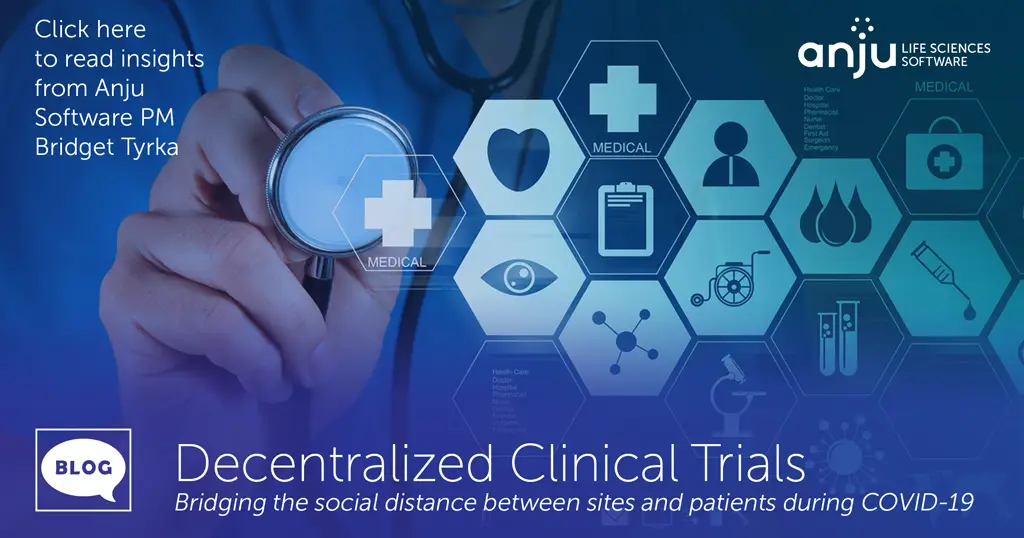By Bridget Tyrka, MS, CCRC, PMP
Perceived and actual barriers to clinical trial patient engagement have been a show-stopping conundrum that researchers and recruiters have struggled with for decades, leading to 80% of all clinical trials failing due to low recruitment rates (Jahdiv, 2016). Currently, with the rapid proliferation of COVID-19 and resulting shelter–in-place orders (a very real barrier to clinical trial participation right now) many experts have expressed grave concerns for all individuals involved in the conduct of clinical trials.
I would be remiss if I did not pause here to thank all of the health care workers involved in the fight against this illness, from administrative site staff, the heroic nurses in the field, and of course our investigators who round in our nation’s hospitals, all working selflessly to save lives. Their tireless efforts on the front lines of this illness, while essential to slowing the spread of COVID-19, has an unintended consequence to healthcare in other respects: namely, the interruption of ongoing clinical trials.
The Impact of COVID-19 on Clinical Trial Patient Engagement
Widespread quarantine and shelter-at-home policies, most with an indeterminate end date, have forced many site closures based on factors like geographical region, therapeutic area, and study phase. Clinical trial sponsors are now faced with the need to identify alternative methods that promote patient retention and continuity of care in clinical trial participation. Telehealth visits via Facetime or Zoom meetings are being conducted in place of in-person site visits, while study coordinators are delivering medication direct to the patients’ homes to maintain dosing schedules. EDC systems are being redesigned to include these alterations in study design, while IxRS vendors must modify validated workflows to ensure that missed visits do not automatically exclude patients from trial participation. CRAs are forced to stay grounded, not being allowed to travel to study sites and conduct source data verification, emphasizing the need for more efficient centralized monitoring solutions (Personal interviews, anonymous, 02Apr2020).
Just as car manufacturers are re-tooling production efforts to engage and defeat COVID-19, we must do the same as an industry to ensure the safety and wellbeing of subjects, while maintaining the viability of our businesses and creating a united front in our approach to minimizing downstream impact. There are many unknowns regarding COVID-19 and trending analyses are still difficult to pin down as the virus sweeps the globe. Long-term strategies will need to be put into place to ensure that clinical research subject safety is guaranteed and innovation in medicine continues with minimal disruption.
The good news is that we at Anju Software have already begun moving toward the decentralization of clinical trials. With our tools and your vision, we can uphold quarantine guidelines and still meet milestones, do our part to help contain the virus and continue to manage patient care, ensuring the safety of investigators and study staff while making certain patients still receive the care that they need. The blueprints for helping sponsors make this transition are complete and ready to be implemented.
Actions You Can Take Right Now
The full transition to decentralized trials will require a strategic implementation over a prolonged period of time. In the short term, there are immediate modifications that can be made to mitigate the impact of this pandemic within ongoing trials. Anju is already supporting customers who are taking action to redesign their case report forms in live studies. Simple changes like adjusting edit checks to prevent validations from firing due to missed visits, and adding questions to capture the method of visit (virtual or telephonic) can help maintain data quality and integrity while lessening the burden on data management staff by preventing extraneous queries. Additionally, TrialMaster’s liquid layout and built-in, BYOD-compatible ePRO capability allows data to be captured securely and in near-real-time on patients’ smart phones. This offers an easy-to-implement, cost-effective solution for sites who need to continue to obtain self-reported data from patients during widespread quarantine. Anju’s strategic technology partners like SnapIoT allow our EDC to integrate with mHealth devices to seamlessly collect and transmit point-of-care data, reducing the potential for data falsification or missed capture of sensitive data points such as vital signs and respirations. Check out our recent joint webinar to learn more.
We alone are not able to stop this virus, nor impact the potential economic hardships caused by the closure of study sites, but we can certainly uphold our responsibilities to our volunteer subjects by changing our practices, methods, and systems to maintain business continuity and protect the health of patient populations across the globe.
About the author
.jpeg?width=183&name=head%20shot_BT%20(002).jpeg)
Bridget Tyrka is a project manager at Anju Software, Inc. She has more than eight years of clinical trial experience. In 2012, Bridget earned a Master of Science degree in Clinical Research Administration. She entered the industry as a clinical research coordinator (CRC) and obtained her CRC Certification (CCRC) from ACRP. She quickly moved to a senior role, overseeing hospital-based clinical trials with focuses on cardiovascular, anesthesiology and OB/GYN trials. Bridget made the switch to Project Management four years ago and obtained her certification as a Project Management Professional (PMP) in 2018. She is currently working on a doctorate in Healthcare Administration and plans on publishing her dissertation on hospital quality in early 2020. Through Bridget’s combined education and career experience, she has a unique and broad vision of the clinical research and healthcare industry.
Resources
Jadhav, S., (2016). Virtual clinical trials: The future of patient engagement? Retrieved from http://www.appliedclinicaltrialsonline.com/virtual-clinical-trials-future-patient-engagement
Snap Clinical (2019). SnapIot. Retrieved from https://www.snapiot.com/
